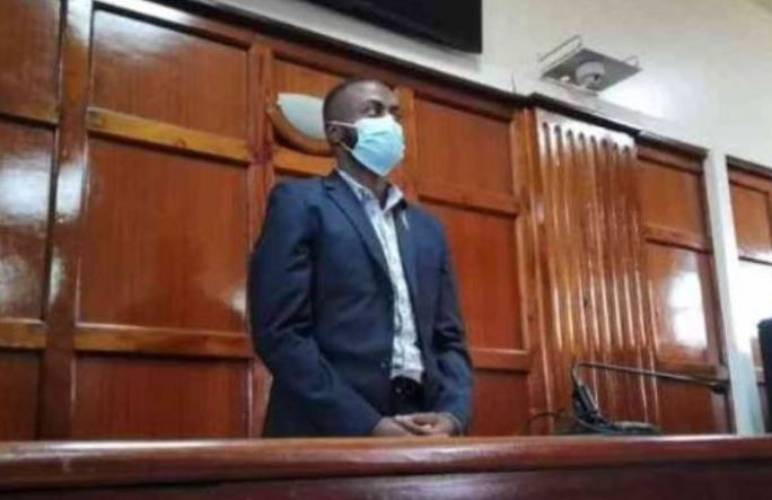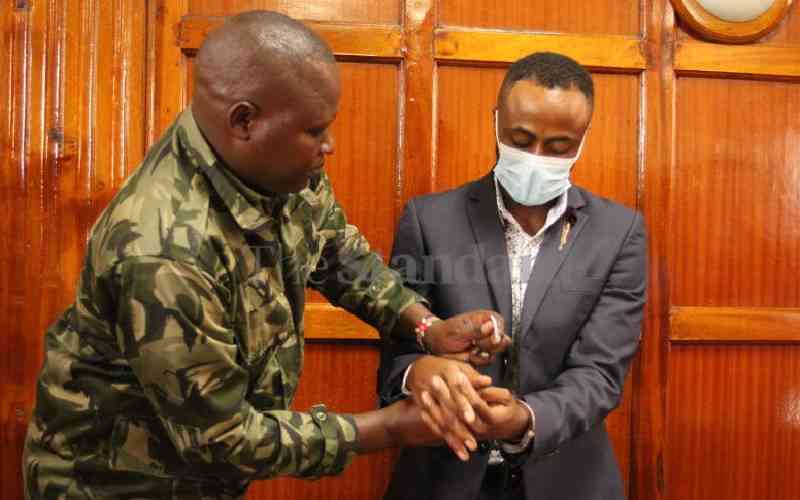By Netsanet Belay
“The last two executions carried out in the country were of 24 persons in 1998, and 29 persons in 1992. These were the largest number of executions carried out on a single day by any government. Sierra Leoneans are still reeling from those (executions). Sierra Leoneans don’t want a repeat of state sanctioned executions.”
So said Sierra Leone’s President, Ernest Bai Koroma, when accepting an award for the positive steps his country had taken towards ending the use of the death penalty. In 2012, Sierra Leone imposed no new death sentences, while pardons in April emptied the country’s death row cells.
Thankfully, Sierra Leone was far from alone in moving towards ending the death penalty last year — progress could be seen in both sub-Saharan Africa and in the world as a whole.
This was made clear in the annual review of death penalty statistics that my organisation, Amnesty International, released today. Once again, we have seen the world move closer to becoming free of the ultimate cruel and inhuman form of punishment, slowly but surely.
Only 21 countries were recorded as having carried out executions last year — this is the same number as in 2011, but down from 28 a decade earlier in 2003.
A longer historical perspective makes the change even more striking — when we first started campaigning for abolition of the death penalty some 35 years ago, the world’s 16 abolitionist countries were a clear minority.
Now 97 countries have completely abolished the death penalty in law, while 140 in total are de facto death penalty free.
In Africa, we could see progress in many countries, not just in Sierra Leone. Benin ratified and Madagascar signed a key UN treaty committing the country to abolishing the death penalty; the government of Ghana moved towards banning capital punishment in its new Constitution; and no death sentenced were imposed in Benin and — unlike in 2011 — Burkina Faso or Malawi.
But despite the progress we saw in pockets of Africa, 2012 was in some ways a disappointing year for the continent.
Firing squad
At least 40 executions were carried out in five countries in sub-Saharan Africa — up from 22 in three countries in 2011. We also saw at least 449 death sentences imposed, a significant increase from the 2011 figure of 254.
There are many reasons behind this downward turn, but three countries in particular stand out.
Botswana resumed executions in January, the first in more than one and half years.
In August, Gambia carried out its first executions in almost three decades when eight men and one woman were shot by firing squad on the same day in August. President Yahya Jammeh first said that by mid-September all death sentences would be “carried out to the letter”, but backtracked following an international outcry and announced a “conditional” moratorium on executions which would be “automatically lifted” if crime rates increased.
Stay informed. Subscribe to our newsletter
There was also a substantial increase in the figures recorded for Sudan. At least 19 people were executed in 2012 and at least 199 death sentences were imposed — a significant jump on the year before, when the reported figures were seven and 13 respectively.
While the higher figures are mostly due to an improvement in the information Amnesty International could obtain on death penalty developments in the country, perhaps most worrying is that the Sudanese authorities continue to use the death penalty to oppress real or perceived activists of political opposition groups.
It is a shame that countries like Sudan and Gambia, and the other three states that executed in 2012 — Botswana, Somalia and South Sudan — seem to undermine Africa’s journey towards abolition. It is a region that has seen much genuine progress over the past five years alone, during which time Burundi, Gabon, Rwanda and Togo, have all abolished the death penalty.
The simple fact is that the death penalty violates a most basic human right – the right to life. Governments still executing are justifying themselves through arguments that just do not stand up to scrutiny.
There is no evidence to suggest that the death penalty acts as a particular deterrent to crime.
Cruel and inhuman
Some governments cling to alleged public support for the death penalty as a way to justify executions. But not only are there indications that this popular support is wafer thin across much of the world, this argument also ignores the fact that the death penalty is a human rights violation and governments should be engaging the public on abolition.
In many countries where the death penalty is still used, there are serious concerns about the fairness of the judicial proceedings — making it very likely that innocent people might be put to death.
Our message to the minority of governments that still execute is clear — the death penalty is cruel and inhuman; it cannot be defended, and in retaining it you are out of step with the rest of the world. We hope that one year from now, we’ll be able to look back on even more leaders coming around to this fact – in the world as a whole, and in Africa.
The writer is Amnesty International’s Africa Director.
 The Standard Group Plc is a
multi-media organization with investments in media platforms spanning newspaper
print operations, television, radio broadcasting, digital and online services. The
Standard Group is recognized as a leading multi-media house in Kenya with a key
influence in matters of national and international interest.
The Standard Group Plc is a
multi-media organization with investments in media platforms spanning newspaper
print operations, television, radio broadcasting, digital and online services. The
Standard Group is recognized as a leading multi-media house in Kenya with a key
influence in matters of national and international interest.
 The Standard Group Plc is a
multi-media organization with investments in media platforms spanning newspaper
print operations, television, radio broadcasting, digital and online services. The
Standard Group is recognized as a leading multi-media house in Kenya with a key
influence in matters of national and international interest.
The Standard Group Plc is a
multi-media organization with investments in media platforms spanning newspaper
print operations, television, radio broadcasting, digital and online services. The
Standard Group is recognized as a leading multi-media house in Kenya with a key
influence in matters of national and international interest.









